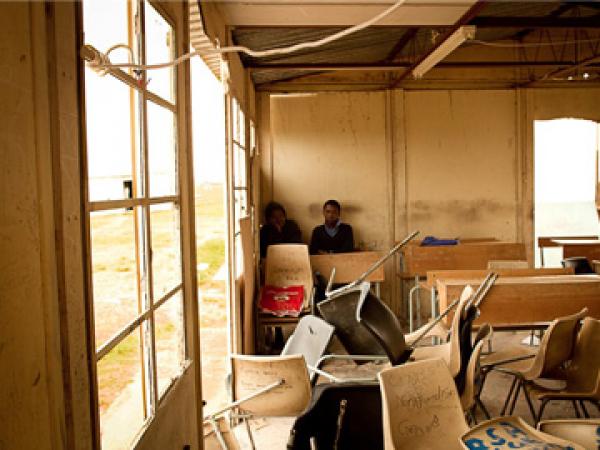Classrooms of the future?

The air is thick with the excitement of the first week of school. Stories of bright-eyed learners whose parents are dropping them off for the start of their school careers, donning their too-big uniforms and carrying backpacks almost the size of the learners themselves, are all over newspapers, radio stations, televisions and social media.
But the “first week of school” story that seems to have attracted the most excitement is the piloting of “paperless classrooms” at seven township schools in Gauteng, bringing cutting-edge technology into the classroom. While learners have not been provided with with the hover boards and self-lacing shoes predicted in the movie “Back to the Future”, the introduction of tablets and other forms of technology as a learning tool is certainly impressive.
MEC for Education in Gauteng, Panyaza Lesufi, has acknowledged that tablets are not the silver bullet that will solve all the problems in education. But he certainly believes that they have their advantages.
We have been told that tablets ease the load on overburdened teachers, they save time and enable full coverage of the school curriculum. They make learning fun through interactive activities. Deputy President Cyril Ramaphosa himself has endorsed these “classrooms of the future”, suggesting that they will boost the economy and make South African educational institutions world class.
But are tablets going to solve the education crisis plaguing South Africa?
Tablets are not a guarantee of good teaching and thorough curriculum coverage. They don’t guarantee that learners will be provided with quality education and equipped with the necessary skills. They do not address problems of poor content knowledge among teachers. Teachers have in fact expressed concern that they will not be able to make use of technology without proper training.
A snapshot of schools across the country suggests that we still have a lot of homework to do before we can claim that we have a world-class education system.
Crumbling infrastructure in thousands of schools across South Africa is a far cry from world class. Many learners throughout the country started their first day of school in dilapidated classrooms with no roofs, no walls, or no windows. Lessons are taking place under trees. If it rains, or if heavy winds come up, lessons are not taking place at all.
Thousands of schools still have basic pit toilets. Almost exactly a year ago, the excitement of the first week of school was brought to an abrupt end by the tragic death of Michael Komape, who fell into a pit toilet on his fourth day of school and drowned.
Learners are exposed on a daily basis to unclean and unsafe toilets at school and little or no water supply.
Some classrooms are really “paperless” - in the sense that the schools have shortages of textbooks, workbooks and stationery.
These “paperless” classrooms include a disproportionate number of schools for the blind, for whom there is no uniform provision of learning materials in an accessible format such as braille or large print. Many blind learners are also taught by teachers who are illiterate in braille.
Thousands of learners with physical and intellectual disabilities do not have access to schools at all. It is difficult to talk about schools of the future where the future of these learners is severely compromised by their lack of access to education.
There is a stark contrast between these scenarios – all of which are examples from SECTION27’s work – and the excitement around the piloting of paperless classrooms in Gauteng.
We must celebrate progress in the provision of basic education. But we cannot let the celebrations distract us from the gaping, and ever-increasing, holes in basic education. If we do so, we risk stretching the equality gap so far that we lose sight of what and who is on the other side.
The classroom of the future does not involve providing state-of-the-art tools to a few and leaving the majority to struggle. The classroom of the future is one in which every child in South Africa has a real chance of becoming a great teacher, writer, police officer, doctor, social worker, entrepreneur, politician, nurse, lawyer, astronaut or scientist.
We must acknowledge the benefits of the use of technology to further the education of our children. But we must more urgently ensure that education is a reality for each and every child in South Africa and that quality education is seen as a right, and not a privilege.
Stein is Deputy Director of Litigation at SECTION27. The opinions expressed in this article are solely those of the author. No inference should be made about whether these reflect the editorial position of GroundUp.
Support independent journalism
Donate using Payfast

Don't miss out on the latest news
We respect your privacy, and promise we won't spam you.
Next: “Enough is enough!” - Manenberg residents take to the streets
Previous: Sexual trauma, a talking cat and a mid-life crisis

This article is licensed under a Creative Commons Attribution-NoDerivatives 4.0 International License.
